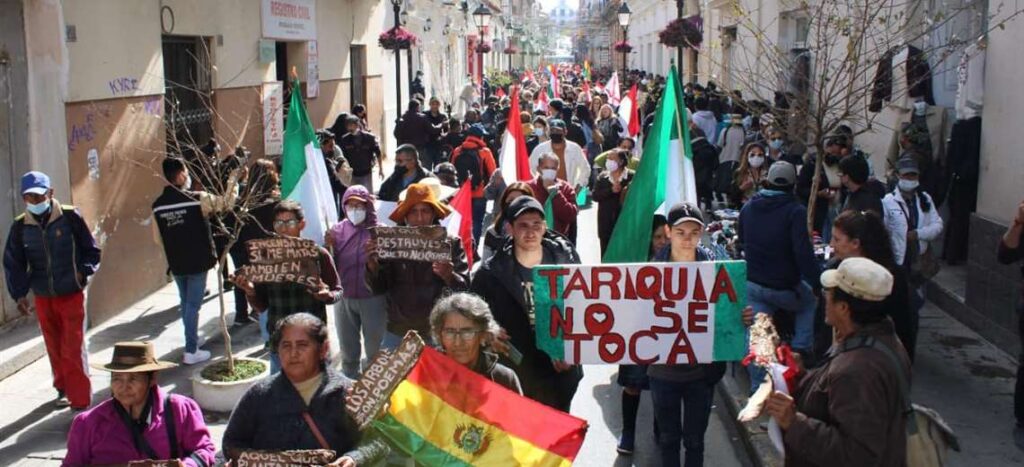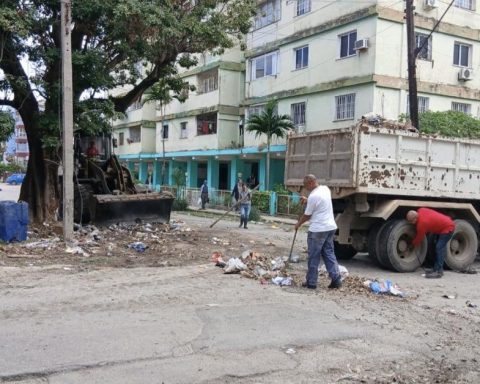Almost 70% of Buenos Aires women do not receive the maintenance obligation from the father of their daughters or sons or only receive it occasionally, a economic violence that cuts across all social classesrevealed a study presented this Wednesday by the Ministry of Women, Gender Policies and Sexual Diversity of the province of Buenos Aires.
“Failure to comply with food obligations in the Province of Buenos Aires: A structural problem that deepens gender inequalities”, is the official report based on a survey answered by 6,442 people from 125 municipalities and more than 50 interviews.
Is he first diagnosis made on non-compliance with parental obligations in the province of Buenos Airesand similar experiences are known in La Pampa and Catamarca.
More than half of the respondents (51.2%) do not receive any type of contribution from the father of their daughters or sons.
Some of the most notable results showed that more than half of the respondents (51.2%) do not receive any type of contribution from the father of their daughters or sons.
Within the group of respondents who indicate that the parent contributes money as child support (41.2%), 24.9% mention that they do so regularly and 15.3% irregularly.
Namely, More than half of those surveyed (66.5%) do not receive child support or only receive it occasionally.
In a notable lower proportion (7.9%), women indicate that the parent meets their food obligations by directly covering expenses and needs.
The impact on girls, boys, adolescents and their mothers
Estela Díaz, Minister of Women, Gender Policies and Diversity of Buenos Aires, highlighted two aspects of the high level of non-compliance with parental obligations.
First “the violation of the right of children and youth to be cared for, in all aspects of their life and development, by their parents.”
And on the other hand “the impact that the lack of economic contribution to the vital sustenance of the children has on the situation of poverty, the lack of autonomy and the overload of care tasks, which mainly women usually face, in many cases, from single-parent homes”.

The report also provided that only 10% of those surveyed considered that the money is enough to cover all expenses and needs of the children, in cases where the father meets his obligations in money.
To financially support the family, when there is no contribution from the father, women must increase their work hours and many go into debt.
Of those surveyed, 44% depend on borrowed money, either from relatives or from banks and finance companies, to complete their monthly income.
Thus, non-compliance with the maintenance obligation makes women pass from the condition of creditors (since they are owed the equal distribution of maintenance and care of sons and daughters) to the condition of debtoraffecting the possibility of exercising an autonomous life, summarized the official document.
Non-compliance with maintenance obligations is not only expressed in daily material needs, but also implies disengagement from the care and upbringing responsibilities of the parents.
There, it was explained that non-compliance with food obligations is not only expressed in the daily material needs (food, clothing or health of children and adolescents), but also implies disengagement from the responsibilities of care and upbringing on the part of The parents.
The analysis showed that the absence of male parents in care responsibilities is transversal to the different social sectors.
“Nevertheless, hits hardest single-mother households in popular sectorsproducing negative effects on women’s living conditions and health,” said the minister.
The main strategy to guarantee responses to these needs is care provided by family and friends (35%) and, secondly, by the mother (23%).
In many cases, older sons and daughters are the ones who take care of their younger brothers and sisters. The option of nurseries, kindergartens and schools, only represents 4% of the responses.

It was found that only 10% of parents take care of their daughters and sons.
In this case, there is a stereotyped division of tasks: parents are more concerned with leisure activities such as going for a walk, sharing an event, spending free time on weekends, while care tasks that are related to school tasks, control medical, food, hygiene continue to fall on women.
Compliance or not with the food obligation becomes a tool of manipulation, extortion and domination, it was considered in the study.
The role of Justice
Many mothers do not opt for the judicial option because they have experienced situations of violence, exhaustion and they even went into debt to be able to pay for a legal service, without guarantees that all this effort would result in the effective collection of the child support obligation.
Added to this is the fact that almost half of those surveyed (45.9%) said they were unaware of the regulatory framework that guarantees their rights and those of children.
Another fact in this regard is that 65% do not know care centers, family counseling or access to justice centers where they can be advised.
The report highlighted that “most people, including parents and justice operators, among others, do not consider that the payment of child support is a child’s right and a measure against economic violence.”
In cases where there is a food agreement, 56.5% of those surveyed said that there is no updating mechanism that allows them to face the increase in the cost of living.
The delay in the judicial process, the extension of the use of dilatory strategies and having to present evidence of how and on what the children’s money is spent, are added to the list of obstacles.
Justice usually establishes percentages ranging from 20 to 35 percent of the father’s salary as food contribution.
In the case of mothers, “they commit 100% of their time and money to the care and needs of their daughters and sons, and in general they receive lower salaries than men. For this reason, pricing can be risky because particularities are lost sight of and simplified, without taking into account the needs of each girl, boy or adolescent,” the document summarized.
In cases where there is a food agreement, 56.5% of those surveyed said that there is no updating mechanism that allows them to face the increase in the cost of living.
In the province of Buenos Aires there is the Registry of Delinquent Alimony Debtors of the Province of Buenos Aires (RDAM), an option that creates obstacles for parents who fail to comply with the obligation.

However, the people interviewed agreed that the effects caused by registration are not effective enough to force payment, in addition to the fact that 69.4% of the women who participated in the study are unaware of its existence.
The document concludes with a series of recommendations for the powers of the State “and also promotes the review of social and communication practices. We also hope that it will contribute to the pending cultural transformations,” said Diaz.

















